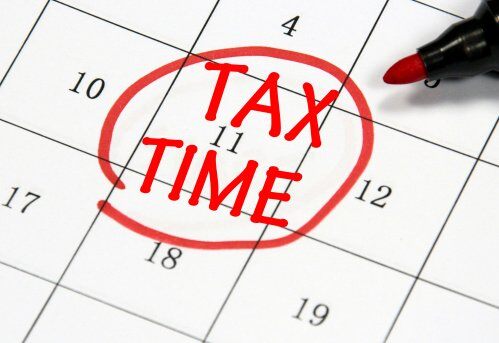While understanding tax deadlines and requirements is crucial for any HOA board, navigating through these can be complex and overwhelming. The intricacies of tax filings often require professional guidance to ensure compliance and avoid penalties. In California, HOAs are subject to various tax reporting and filing deadlines, each with its own set of requirements and implications. While it's imperative for HOA boards to collaborate with accounting professionals who specialize in HOA tax matters, Davis-Stirling offers some key deadlines and considerations for HOA tax returns.
Employment Tax Returns
For associations employing staff, such as maintenance personnel or administrative assistants, adherence to employment tax deadlines is essential. Forms such as Federal 941 and California DE-6 are typically due within 30 days after the end of each calendar quarter. Annual tax reports like Federal W2 and 940, along with California DE-7, are due by January 31 of the following year.
Federal Income Tax Returns
Regardless of size, all HOAs must file a Federal income tax return within two and a half months after the end of their fiscal year. The standard deadline for calendar year associations is March 15, although extensions are available by filing IRS Form 7004. HOAs can choose to file either Form 1120H or the standard corporate Form 1120.
California Income Tax Returns
Similar to Federal requirements, California Form 100 is due by March 15 for HOAs. While many associations enjoy tax-exempt status in California, it's essential to note that non-membership income, such as interest, may still be subject to taxation. Failure to file Form 100 when necessary can lead to significant penalties, interest charges, and potential suspension of the corporation by the state.
Timing is Crucial
It’s important for HOAs to understand the timing and consequences of tax filing. Tax returns must be submitted within 2 1/2 months of the end of the association's fiscal year, with the option to extend the deadline by six months through the appropriate form.
Current HOA boards inherit the fiduciary duty to uphold tax obligations, irrespective of any oversights or negligence by preceding boards. This responsibility underscores the importance of diligent oversight and proactive engagement with tax matters. Failure to fulfill these obligations not only exposes the association to significant penalties but also jeopardizes its financial stability.
Beyond immediate repercussions such as penalties and back taxes, the accumulation of accrued interest compounds the financial strain, potentially impacting the ability to meet other essential operational needs and reserve obligations.
It’s imperative for current boards to prioritize tax compliance, diligently addressing any historical discrepancies while implementing robust systems and procedures to ensure ongoing adherence to regulatory requirements.
How to Find the Right Tax Assistance
To navigate these complexities effectively, it's recommended for HOAs to engage the services of a Certified Public Accountant (CPA) specializing in homeowner associations. Such professionals possess insights into unique issues surrounding reserve accounts and tax filings specific to associations, ensuring compliance and mitigating risks.
By partnering with a specialized CPA, HOAs can safeguard their financial health and fulfill their tax obligations efficiently.
Navigating through these deadlines and ensuring compliance can be daunting for HOA board members, who often volunteer their time and expertise. Seeking assistance from accounting professionals specializing in HOA taxation or HOA Management companies can avoid missteps and potential financial liabilities.
In addition to tax matters, HOA boards can benefit from the expertise of HOA managers in various critical areas. From understanding legal obligations to conducting reserve studies and managing day-to-day operations efficiently, an experienced HOA manager can provide invaluable support.
Navigating the intricate landscape of HOA tax obligations demands a thorough understanding of deadlines, requirements, and potential pitfalls. Partnering with a specialized CPA can alleviate the burden on HOA boards, ensuring compliance and mitigating risks effectively. However, not all accounting services are created equal.
Consider Hignell HOA Accounting Services
As your association embarks on another tax year, if your HOA board is seeking tailored support from experts well-versed in the unique needs of homeowner associations, consider contacting Hignell HOA and asking about accounting and consulting services.
With a wealth of experience and a deep understanding of HOA-specific challenges, Hignell HOA offers comprehensive accounting services tailored to meet the diverse needs of associations.
From tax preparation and filing to financial reporting and budgeting, Hignell HOA’s dedicated team provides personalized solutions designed to optimize financial management and safeguard the long-term success of homeowner associations.
By entrusting your accounting needs to Hignell, HOA boards can focus on their core responsibilities with confidence, knowing that their financial affairs are in capable hands.

.jpg)








